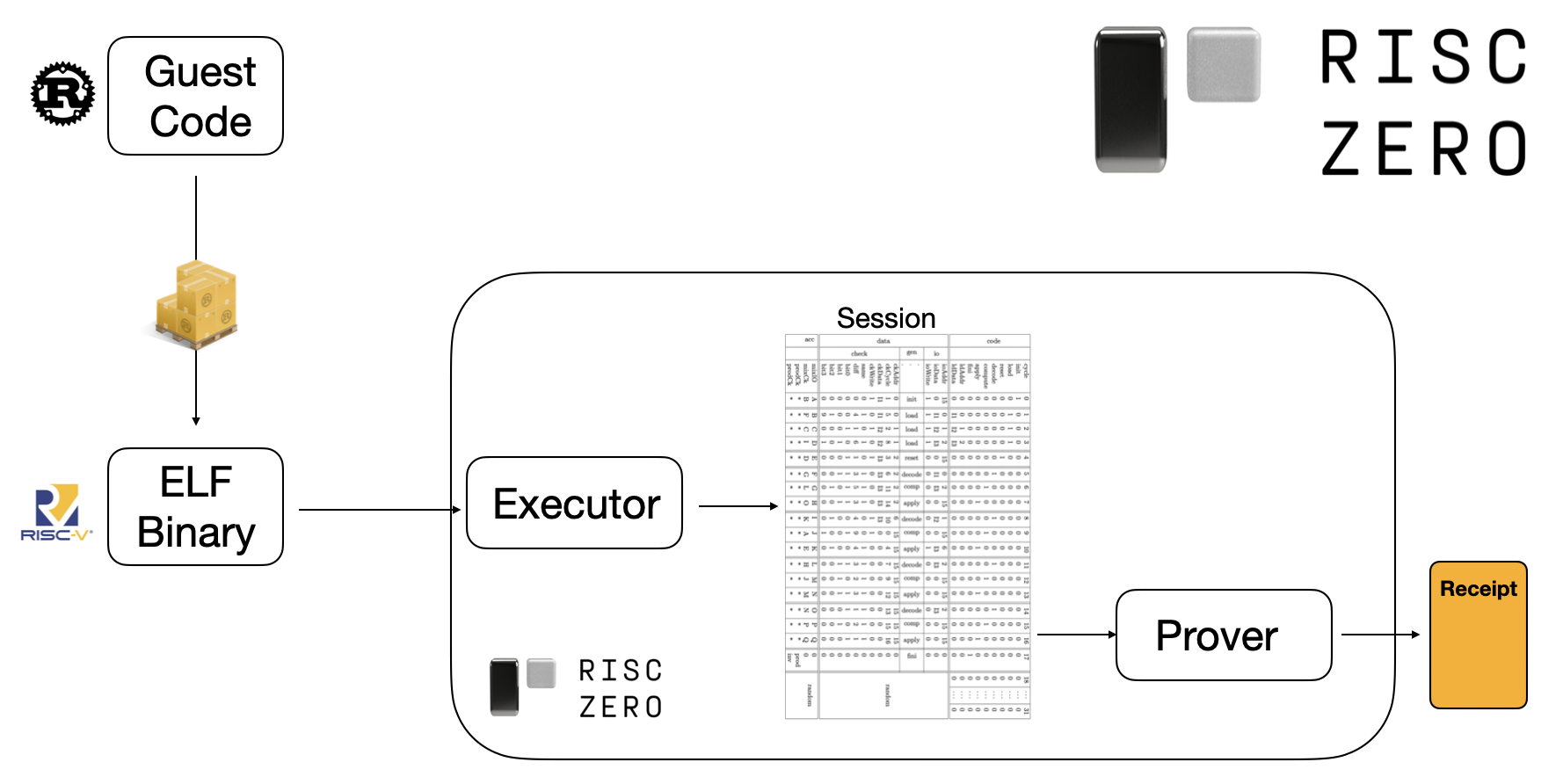Guest Code 101
In a zkVM application, the guest code is the code that will be executed and proven by the zkVM.

This page serves as an introduction to writing RISC Zero guest code, to help you get started building applications for Bonsai and the zkVM.
- For a guide to writing and running your first guest code, check out our zkVM Quick Start.
- For a simple example, check out the Hello World tutorial, where the guest receives two inputs from the host and commits their product to the journal.
The full functionality of the guest is documented in the guest
module of the risc0-zkvm Rust crate.
Basic Guest Functionality: Reading, Writing, and Committing
To build a zkVM application, we need our guest program to be able to:
To support various use cases, there are a number of functions that can be called
from the guest for reading/writing/committing. For a complete list, see the
guest module documentation; we include a brief list which
should be sufficient for building your first application:
- Reading inputs
env::read,env::read_slice, andenv::stdin - Writing private outputs to host
env::write,env::write_slice,env::stdout,env::stderr - Committing public outputs to journal
env::commit,env::commit_slice
Tools for Debugging & Optimization
There are also a number of functions available to support with debugging and
performance analysis. As above, we refer to the guest module for a full
list, but include some highlights here:
- Count Cycles
env::cycle_count - Print a debug message
env::log
For more information on optimization & performance, see our pages on Cryptography Precompiles and Benchmarking.
Boilerplate before main()
In our template and examples, there's a bit of boilerplate code before
main(). In this section, we explain what each of those lines is doing:
#![no_std]
The guest code should be as lightweight as possible for performance reasons. So, since we aren't usingstd, we exclude it.#![no_main]
The guest code is never launched as a standalone Rust executable, so we specify#![no_main].risc0_zkvm_guest::entry!(main);
We must make the guest code available for the host to launch, and to do that we must specify which function to call when the host starts executing this guest code. We use therisc0_zkvm_guest::entry!macro to indicate the initial guest function to call, which in this case ismain.
Happy Building!
Hopefully, this guide and the zkVM Quick Start page will be sufficient for you to build your first zkVM application!
If you run into problems, don't be a stranger! You can file an issue on these docs or the examples, and we're happy to answer questions on Discord.